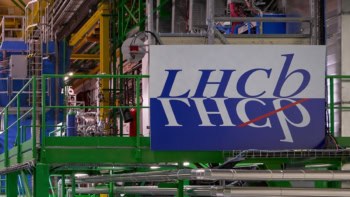No company illustrates the recession that has brought some of the world's leading high-tech companies to their knees like Marconi, the British-based communications firm. In August 2000 shares in Marconi were valued at £12.50 - in the middle of last month they were worth 33 pence and the company reported a record loss of £5bn. Hardly a fitting way to mark the 100th anniversary of Guglielmo Marconi sending the first radio waves across the Atlantic.

The Marconi story (see article) has featured a cast of interesting characters. Marconi himself was a larger-than-life scion of a wealthy Irish-Italian family, an energetic mix of entrepreneur, inventor and playboy. Until the mid-1990s the Marconi legacy was maintained by GEC, which was Britain’s largest manufacturing company, with interests ranging from defence to medical electronics. For many years GEC was presided over by Arnold (later Lord) Weinstock, who gained a reputation for being a successful, if cautious, leader. Criticisms focused on the large cash reserves that Weinstock maintained when, critics argued, he should have been spending more on R&D and acquisitions.
The same criticisms cannot be levelled at Weinstock’s successor, George (later Lord) Simpson, who took over in 1996. Simpson decided to sell the company’s defence and aerospace interests, and to focus on the communications sector, which at the time was thriving. GEC was renamed Marconi to symbolize this new direction.
Business was good for a while, but 2001 will be a year to forget for Simpson and Marconi: recession, the collapse of the dot.com bubble and the decision of many telecommunications companies to delay investments in new network infrastructure and equipment hit the company hard. Moreover, some of the companies that Simpson bought with the cash reserves have proved to be worthless. However, Marconi has been not alone in posting multi-billion pound losses, and Lucent Technologies, Nortel and others have all suffered large reverses.
Simpson has since left the firm and a new management team is trying to bring Marconi’s £4bn debt under control and revive the company’s fortunes. Its medical-systems business has been sold to Philips and the workforce in its core business is scheduled to fall to 29 000 in March 2002, a reduction of 10 000 over the course of the year. The company will remain focused on communications – optical networks and broadband technology in particular – and plans to maintain investment in R&D at 11% of revenue. This will involve some reduction in the number of R&D staff but plans will not be finalized until next February.
In the short term Marconi’s fortunes will depend more on its bankers than on its research and development staff. However, it would be shame if a physics-based company with such a long history – many famous high-tech companies have come and gone over the same time frame – should go under with a brave new world of broadband and third-generation wireless technology on the horizon.
Hawking made easier
Stephen Hawking’s new book, The Universe In A Nutshell, receives a favourable review in this issue. It will come as a relief to readers who are not professors of astrophysics to read that our reviewer, who is a professor of astrophysics, finds some of Hawking’s ideas difficult to follow, although this latest work is much more accessible than A Brief History of Time. However, by showing that there was a huge latent demand for popular books about the frontiers of science, Hawking’s bestseller has had an immensely beneficial effect – irrespective of how many copies lie unfinished on coffee tables around the world.



